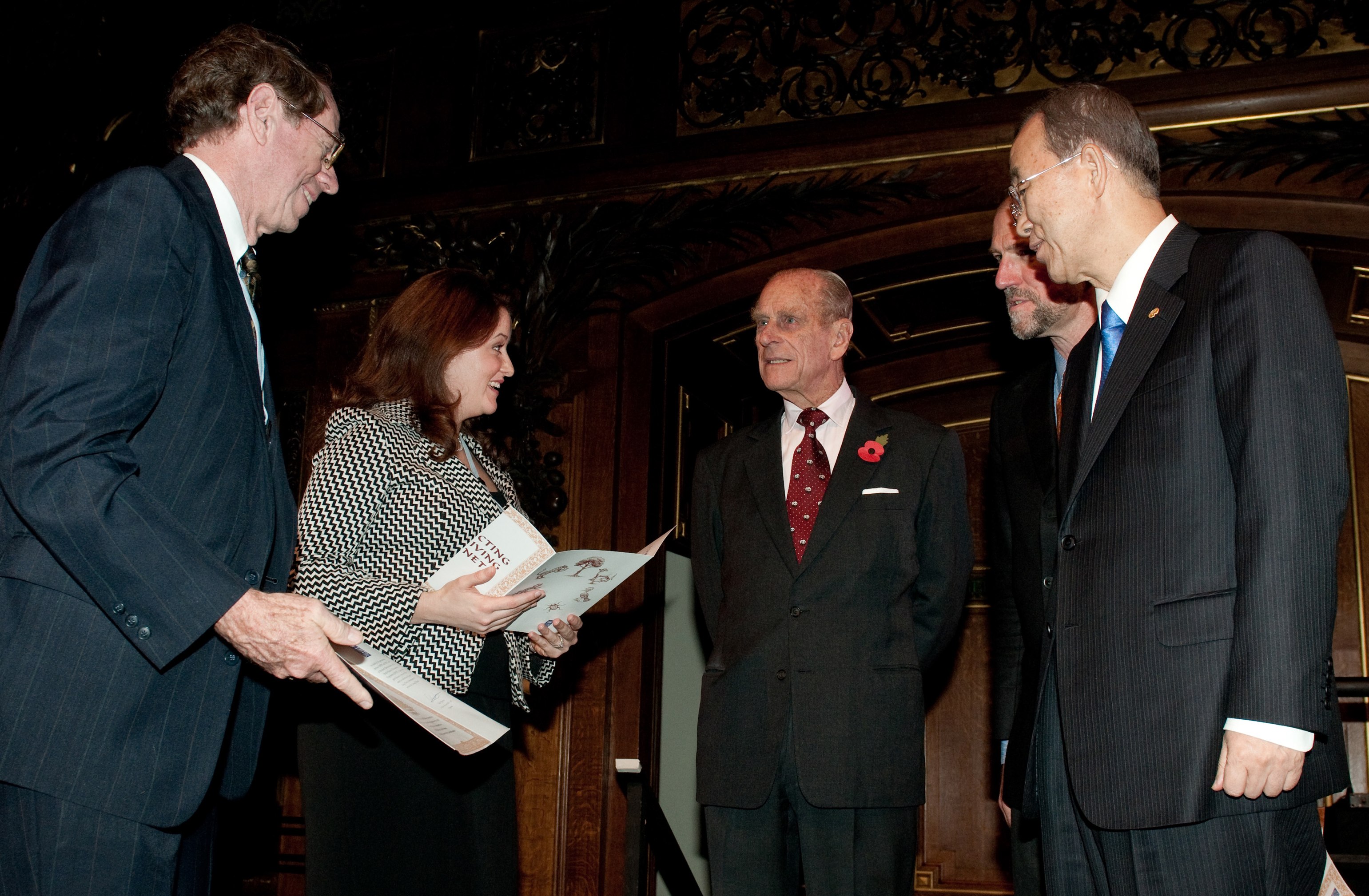
WINDSOR, ENGLAND — Leaders representing the world's major religions, including the Baha'i Faith, gathered yesterday at historic Windsor Castle to formally launch a series of action plans involving their communities in a long-term effort to protect the environment.
They were joined by United Nations Secretary General Ban Ki-moon and HRH Prince Philip, the Duke of Edinburgh, in a celebratory meeting that emphasized the role religion can play to inspire grassroots change and make "peace with the planet."
"I have long believed that when governments and civil society work toward a common goal, transformational change is possible," said Mr. Ban. "Faiths and religions are a central part of that equation.
"Indeed, the world's faith communities occupy a unique position in discussions on the fate of our planet and the accelerating impacts of climate change," he said.
The three-day event – which ended at noon today – was sponsored by the United Nations Development Programme (UNDP) and the Alliance of Religions and Conservation (ARC), which was founded in 1995 by Prince Philip.
The core session of the gathering was yesterday's meeting at Windsor Castle, where representatives of each religious group presented a seven-year plan designed to promote "generational change" in attitudes towards the environment.

Thirty-one plans were presented, reflecting representation by virtually all of the world's independent religions: the Baha'i Faith, Buddhism, Christianity, Daoism, Hinduism, Islam, Judaism, Shintoism, and Sikhism.
In general, the plans sought to offer concrete, practical steps for action.
The Muslim plan, for example, calls for the establishment of an umbrella organization, Muslim Associations for Climate Change Action (MACCA), that will represent Islamic nations and faith communities from around the world. It also calls for an Islamic environmental labeling system, a "Green Hajj" so that within 10 years the traditional Islamic pilgrimage will be recognized as environmentally friendly, and the construction of a model "green mosque" to showcase best practices in heating, light, and design.
The Sikh plan urges all Sikh gurdwaras – temples – to recycle, compost, use green energy, use eco-stoves, start rainwater harvesting, purchase reusable plates and cups.
Representatives of the Baha'i Faith presented a plan that focuses on using a system of regional training institutes to encourage within the worldwide Baha'i community "acts of service related to environmental sustainability."
"Baha'is believe that religious belief and spirituality lie at the foundation of human motivation and behavior," said Tahirih Naylor, a Baha'i International Community representative to the United Nations who was one of two Baha'i delegates to the Windsor event.
"We believe that efforts to change harmful human behavior – such as those actions that contribute to global warming or environmental degradation – can be greatly facilitated by processes that lead to a better understanding of our own relationship to God, and of humanity's relationship with nature. It is from such understanding that action naturally arises."
The approximately 200 representatives from religious communities, environmental groups, and international agencies who gathered in Windsor also met in a series of plenary sessions and workshops at the Harte and Garter Hotel to discuss how they can reach a new level of collaboration in the face of global warming, water shortages, deforestation, and other environmental threats.
"Climate change is complex, and dealing with it requires us to change at many levels," said Olav Kjorven, assistant secretary general of the United Nations and director of the Bureau of Development Policy at the UN Development Programme. "It requires a change of ethos. Religions have an unparalleled ability to reach out to people at the grassroots and to touch hearts and minds. Religious institutions are the third largest actors in international markets. Environmentally friendly purchasing decisions by them would have a huge impact across the world."
Tony Juniper, special adviser to the Prince of Wales' Rainforests Project and former executive director of the Friends of the Earth, likewise emphasized the important role that religions can play.
"Scientific rationalism gave rise to good science, which in turn gave rise to strong political arguments for cleaning up the environment," Mr. Juniper said.
"As a result, governments dealt with acid rain and other environmental threats. But these changes were only superficial," he said.
"Purely scientific rationalism cannot change our fundamental understanding of who we are and how we should live. Religion and science must work together to bring about a fundamental transformation in our relationship to the world. This kind of change needs a spiritual foundation," he said.
Baha’i Seven Year Plan of Action on Climate Change
(Adobe Acrobat 40KB)
ARC: Faith commitments to protect the planet
(Adobe Acrobat 1MB)